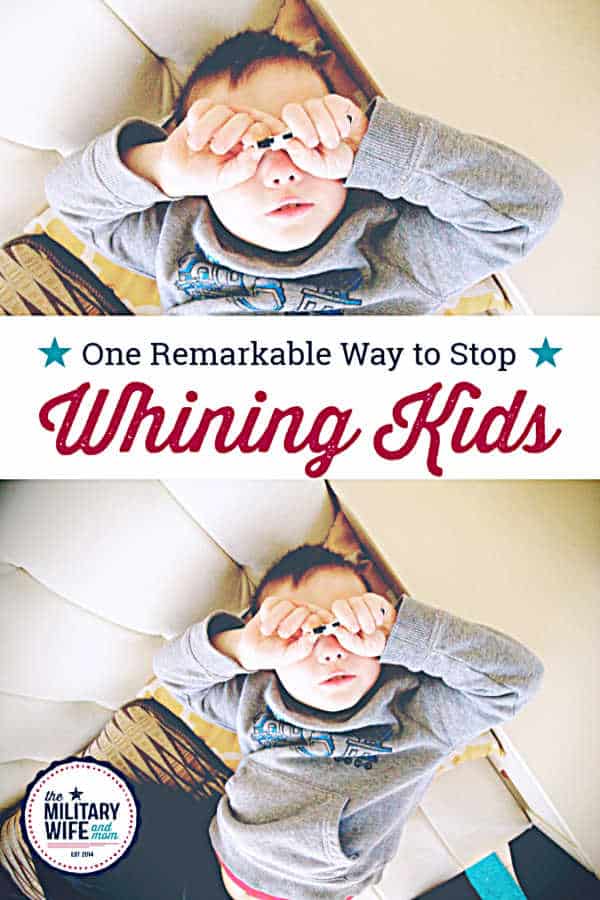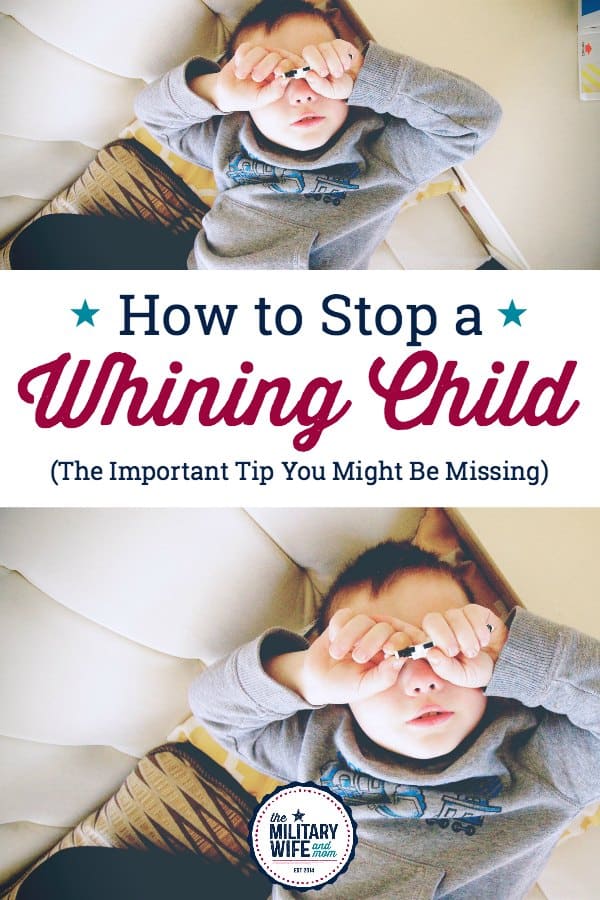I sat at the kitchen table, looking across the room as he struggled with the button on his pants. Using both hands to firmly grasp the button and hole, he attempted several times to secure his pants around his waist. I wanted him to stop whining and saying that he “couldn’t do it.”
No luck.

It’s hard to sit back and watch your child struggle with a task, especially when it’s feels easier to swoop in and fix it. It starts with something as simple as a button or a toy that won’t work. Your child gets upset and frustrated. Then howls of whining start to pierce your ears.
And honestly, I’m a total wimp when it comes to this stuff. I’ll do anything to make the whining stop. But then…
“The fixing” spills over into all sorts of areas.
Cleaning his room. Easier for me to do it.
Brushing his teeth. Easier for me to do it.
Getting him dressed. Easier for me to do it.
Putting together the puzzle at the table. Easier for me to do it.
Buckling his seat belt. Easier for me to do it.
Putting his dishes in the sink. Easier for me to do it.
Can’t figure out an activity from school. Easier for me to do it.
Each day I have a knock-out battle in my head: Fix the problem or coach him through it. I have a few more decades of life experience and practice than him; so of course, it takes me far less time to fix a problem for my son than it does to listen to the whining and coach him through the problem.
But is it really easier in the long run?
Ultimately, when I “fixed” all the small problems for him throughout the day, I positively reinforced whining and the incessant need for help with every little thing.
Suddenly, things that he previously worked through on his own, like fixing a broken toy, now resulted in whining and crying until I came to rescue him and fix the toy.
Oye – It was time for a change.
How to stop whining.
Maybe you’ve read all the toddler parenting books and nothing seems to work. Maybe you’ve responded with “oh, yes you can” or “just give it a try” or “you can do it.” But your child continued to whine, give up or spiral into negative self-talk.
I made one simple change: Each time I saw him struggling with a problem, I described the situation.
I started the moment I saw him struggling with the buttons…
“You’re trying hard to button your pants, and you’re frustrated because it’s not easy for you.
You’ve got the button in your one hand and the button hole in the other. You’re trying hard to pull those two parts together.
You working to move the button through the hole but it keeps slipping, and you’re really trying now. It’s so close. You’ve almost got it.
You have half the button through the hole, and you pushed it a little bit more. Now you’ve got it. It’s all the way through.
Wow. You did it all by yourself.”
He looked up at me, cocked his head to the side and smiled. In that moment, he felt so proud of himself. He worked his way through a problem without a single urp of a whine.
One trick to raising a problem solver.
If your child is struggling to complete a task, appropriate for their age and development, simply describe what they are doing to work through the problem. Acknowledge their feelings and actions without doing anything more.
Kids live almost completely in the present moment. Through describing the situation, you dive straight into the present moment with your child and you connect.
I tried the same technique again.
I thought for sure it was a fluke that this technique worked earlier in the day. I decided to try it again that evening when he was struggling at dinner.
Reaching for soup ladle to fill my bowl I said, “You are having a hard time eating the soup. It’s messy and it keeps falling off your spoon before it reaches your mouth. It’s upsetting you, but you’re trying to carefully scoop it into your mouth.”
He looked up at me.
I waited for him to go strong-willed child and start whining.
I thought for sure he would ask me to feed him the soup or refuse to eat at all. I continued describing the situation.
“That time you spilled even less. You’re putting the spoon back into your bowl and scooping up more soup. You were so very careful that time to get it into your mouth without spilling. Wow. You did it all by yourself.”
I sat there waiting patiently. Then little-by-little, scoop-by-scoop, he continued until his bowl ran empty. All he needed was someone to take notice of his efforts and offer some encouraging phrases.
Then he looked at me, raised his bowl, and smiled. I smiled back and fell straight back into describing the situation.
“You liked eating the soup. You look like want more.”
He nodded. I grabbed the bowl. And in that moment, we connected.
When your child pouts, whines, and wants to give up, remember this: You have the power to encourage perseverance and problem solving. Describe the situation. Keep their focus in the moment. And for dear life, hang onto your patience.
Print this free listening checklist.
This post comes with a free printable checklist to help with listening. I always have the hardest time remembering these phrases. This printable simplifies it!
Here is a sneak preview…
Download Your Free Printable
- Download the checklist. You’ll get the printable, plus join 37,000+ parents who receive my weekly parenting tips and ideas!
- Print. Any paper will do the trick, but card stock
would be ideal.
- Place it on your refrigerator. Check things off as you go and don’t forget a thing!
Want more on parenting?
- 3 Things Every Parent of a Strong-Willed Toddler Needs to Know
- 5 Steps to Stop Toddler Biting in Its Tracks
- 2 Year Sleep Regression Explained! Why It Happens and How to Fix It
- How to Put a Toddler to Sleep Fast
- 7 Powerful Ways to Deal With Toddler Whining

I've created a free email series just for you! If you are struggling with teaching your child to listen, this series will help transform your parenting. Yes, really. I've seen my proven strategies work time and time again for parents. I know it can work for you too.
After taking my free email series, you will:
- Learn simple, yet highly effective listening strategies
- Experience a stronger connection with your child
- Enjoy more peaceful parenting days
- Gain more cooperation from your child














Thanks for sharing! This is a much more empathic approach than telling them to stop whining !
LOVE these tips! Can’t wait to give them a try, I think that will really work with my little guy! Looking forward to reading more tips!
Such a great way to handle this! I also enjoyed Trish’s comment, very helpful! I think people put themselves and their kids through a lot of extra suffering because they decide that negative behavior is a “phase” that the kid needs to work through, when in reality if the parent is willing to engage and walk the child through it, the phase can end faster and–bonus!–the kid learns that their parent is a fount of patient wisdom, whose knowledge and experience can be sought out to help with a wide range of difficulties.
And when we’re single parents for months at a time because the husband is deployed or training, all those stresses build up in the kids and can surface in a variety of ways. Thank you for giving positive (not passive!) solutions for behavioral problems; I’ll be reading more of your blog archive in coming days.
Thanks for sharing this. I really enjoyed reading it. It is very good. This is interesting as well as very engaging. I couldn’t stop until I finished it.
These are great tips to help end power struggles with kiddos. It is easier the early you start:)
Thanks for sharing! This is a much more empathic approach than telling them to stop whining !